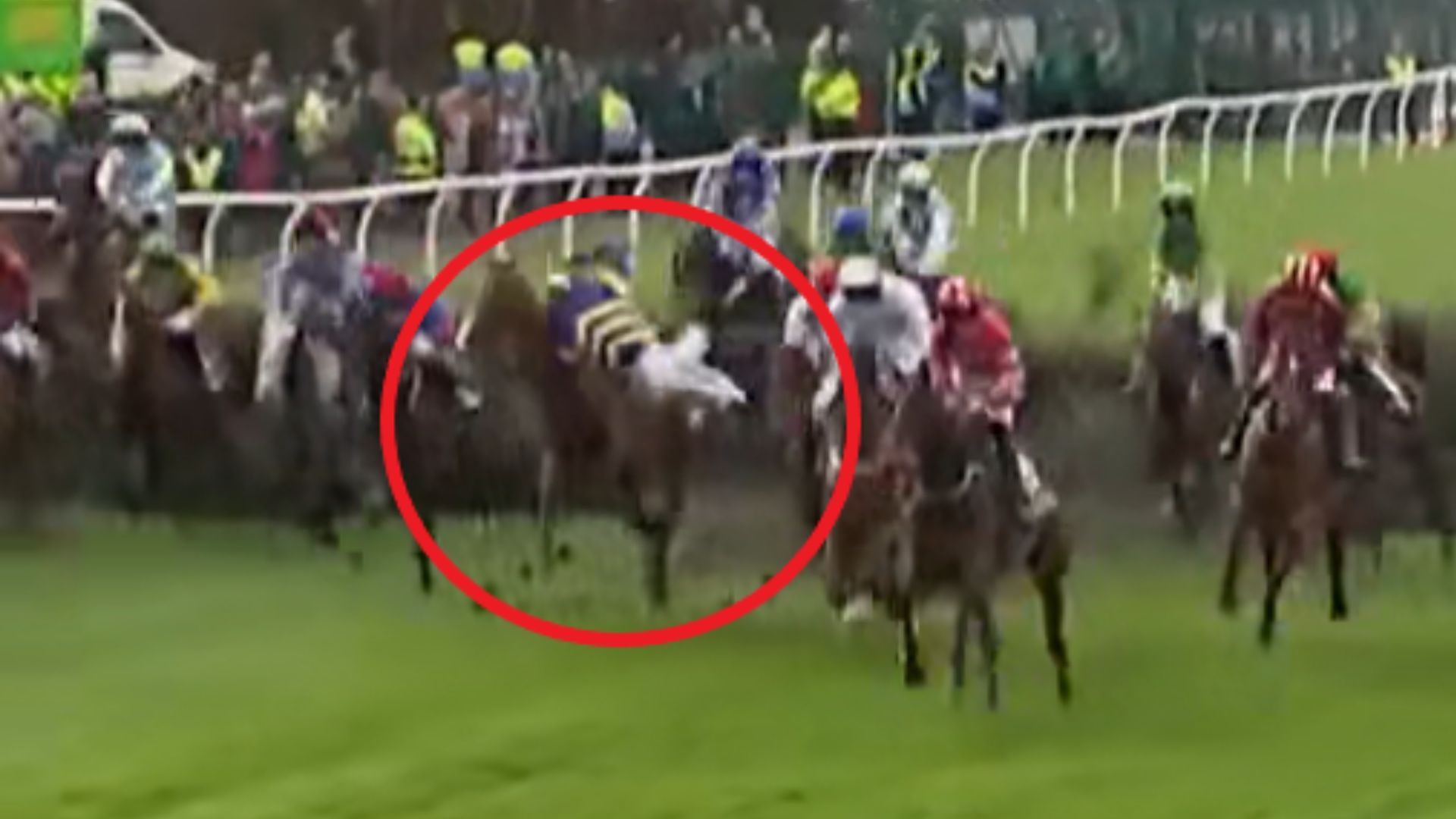Start Controversy Unfolds
The Grand National kicked off with high drama as Corach Rambler, a top favorite, unseated at the first fence. Speculation arose over a suspicious standing start, with horses seemingly on the move despite new rules.
Defending Champ's Unfortunate Exit
Last year's winner, Corach Rambler, met a dramatic end as he crashed out at the first fence, leaving supporters in dismay. Derek Fox's early exit left many stunned, with eventual winner I Am Maximus stealing the show.
Social Media Buzz
The unexpected turn of events sparked a flurry of reactions on social media, with fans expressing their disappointment over Corach Rambler's misfortune. From disbelief to sympathy, the online community shared their thoughts on the race.
Gambling Responsibility Reminder
As the excitement of the Grand National unfolds, it's essential to remember to gamble responsibly. Setting limits, staying in control, and seeking support when needed are crucial aspects of safe gambling practices.
Frequently Asked Questions
How do betting odds work in horse racing?
The odds of winning a horse race bet reflect the probability that a specific outcome will occur. These odds can be presented in decimals or fractions to show the possible profit of a winning bet. Odds are affected by the amount bet per horse, and they can change until the race. A seasoned bettor will watch these changes to make informed wagers.
What role does a jockey have in a horserace race?
A jockey’s skills and decisions can have a significant impact on the outcome of a race. An experienced jockey knows how to pace the horse, when to hold back or push forward, navigate the field, and effectively use their whip to coax maximum effort from the horse in the final stretch of the race. A successful partnership is dependent on the relationship between horse and jockey.
What is the importance of the bloodline of the horse in racing?
Bloodlines are important because they indicate the traits that have been passed on from their ancestors. These include speed, stamina and temperament, all of which are critical to racing success. Breeders use a horse’s pedigree to predict its potential. They also match stallions and mares in order to produce offspring that have desirable racing characteristics.
How do you measure a horses fitness for a race?
Before a race, a horse’s fitness is evaluated by a combination between veterinary inspections, trainer observation, and performance during training sessions. Vets look for signs of injury and ill-health, while trainers observe their response during training sessions. The horse’s behavior leading up the race may also give insight into the horse’s readiness to compete.
What types of surfaces are horse races run on?
Horse races can be run on a variety of surfaces including synthetic, grass, and dirt. The different types of surfaces can influence a horse differently. Some horses might even have a preference. The outcome of the race can be affected by changes in conditions, such as a muddy track caused by rain.
Statistics
- Australia hosts more than 19,000 horse races annually, making it home to one of the busiest racing calendars globally.
- There are over 9.2 million horses in the United States, with a significant portion of these bred for the purpose of racing.
- Horse racing events in the United Kingdom draw in a yearly attendance of over 6 million people.
- The Melbourne Cup, Australia’s most prestigious horse race, sees an average attendance of over 100,000 spectators each year.
- The average racing career of a Thoroughbred horse spans approximately three to four years, after which many pursue breeding or other equestrian activities.
External Links
racing.com
britishhorseracing.com
retiredracehorseproject.org
bloodhorse.com
kentuckyderby.com
How To
How To Read Horse Racing Programs
To read a race horse program, you need to know the important facts about the races. Take a look at the horses’ statistics. This includes their previous performances, winnings and training. Jockey stats will tell you about the experience and success rates. Race distances and types are important, as certain horses will perform better under specific conditions. The program also includes a horse’s lineage, race history and class, which will give you an overview of its performance. Lastly, look at the morning line odds for a preliminary idea of the horse’s chances in the race as assessed by handicappers.
Did you miss our previous article…
https://www.sportingexcitement.com/horse-racing/the-novices-steeple-chase-at-aintree-full-results-and-schedule/

